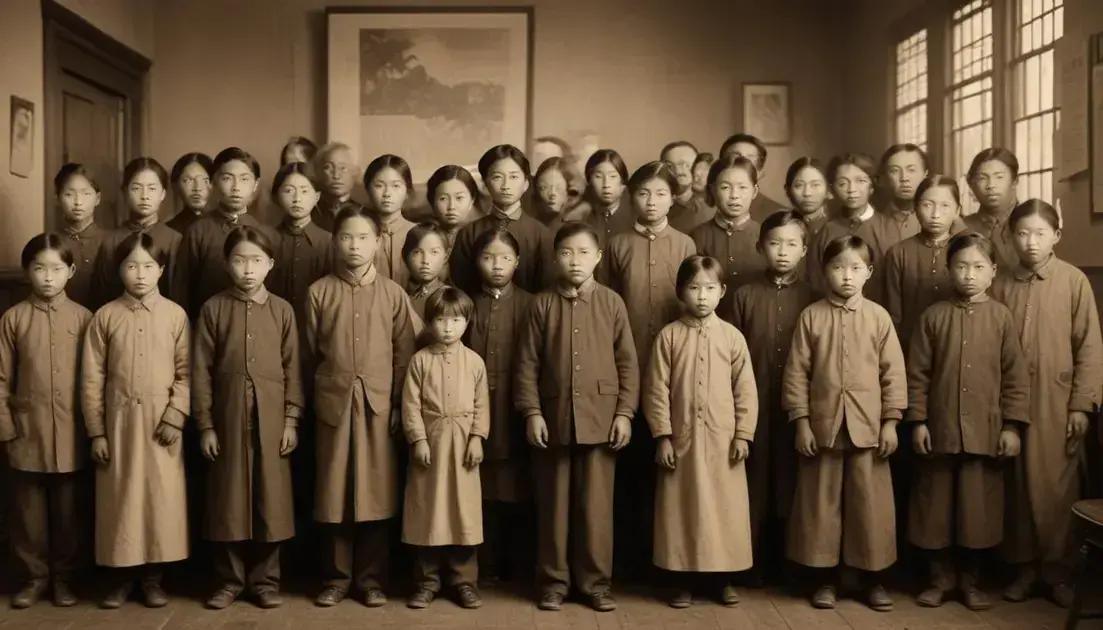
Haitian Revolution: The Only Successful Slave Revolt
The Haitian Revolution (1791-1804) is recognized as the first successful slave revolt that led to the creation of an independent state. Key figures like Toussaint Louverture and Jean-Jacques Dessalines played critical roles in this struggle for freedom, which profoundly influenced global views on slavery and equality. The revolution not only challenged colonial systems but also inspired other freedom movements worldwide, reshaping concepts of race and justice. Its lasting impact continues to resonate today, encouraging ongoing discussions about human rights and self-determination in various social movements.
The Haitian Revolution is a remarkable chapter in history, showcasing the power of resilience against oppression. Curious about how enslaved individuals turned the tide? Let’s dive in!
1. Introduction to the Haitian Revolution
The Haitian Revolution was a pivotal moment in history. It began in 1791 and lasted until 1804. This revolution was extraordinary because it was the first successful revolt led by enslaved Africans in the Americas. They fought against French colonial rule and sought freedom from slavery.
Enslaved people in Haiti faced cruel treatment and harsh conditions. They were determined to change their lives. Leaders like Toussaint Louverture and Jean-Jacques Dessalines emerged, inspiring others to join the cause. Their courage and strategy helped to unite people from different backgrounds.
This revolution wasn’t just about freedom for the people of Haiti. It challenged the entire system of slavery throughout the Americas. The victory of the Haitian people sent shockwaves across the world, inspiring other movements for independence and rights. It showed that change is possible, even against great odds.
The impact of the Haitian Revolution continues to be felt today. It sparked discussions about human rights and equality everywhere. People still look to this brave struggle as a symbol of hope and resilience.
2. Historical Context of Slavery
The historical context of slavery in Haiti is vital to understanding the Haitian Revolution. For many years, enslaved Africans worked on sugar and coffee plantations. They endured brutal conditions, long hours, and little to no pay. This cruel system benefited French colonizers immensely.
Slavery began in the early 1700s when the French established their rule. They imported thousands of enslaved Africans to meet the high demand for sugar. This made Haiti one of the richest colonies in the world. However, it’s essential to remember that this wealth came at a terrible price.
Families were torn apart as people were taken from their homes. The enslaved population resisted in many ways. Some revolted, while others formed tight-knit communities, preserving their cultures and traditions. This resiliency laid the groundwork for the revolutionary spirit that would follow.
By the 1780s, discontent was growing. Enlightenment ideas about freedom and equality spread across the Atlantic. These ideas ignited a desire for change among the enslaved. The French Revolution in 1789 served as further inspiration. It encouraged enslaved people to fight for their rights and demand freedom.
Understanding this historical context shows how the seeds of the revolution were planted. Over time, the struggle for freedom would lead to the remarkable events of the Haitian Revolution.
3. Key Figures in the Revolt
Several key figures played vital roles in the Haitian Revolution. Their leadership and bravery inspired others to join the struggle for freedom. One of the most famous leaders was Toussaint Louverture. He was a former enslaved person who became a skilled military strategist.
Toussaint led countless battles against French forces. His vision of freedom and equality motivated the people. He organized soldiers and created alliances with other revolutionary leaders. His strategic thinking was crucial in the fight against colonial powers.
Another important figure was Jean-Jacques Dessalines. After Toussaint was captured, Dessalines took charge of the revolution. He was determined to secure independence for Haiti. Dessalines declared Haiti’s independence in 1804, making it the first Black republic in the world.
These leaders didn’t work alone. Many others contributed to the revolution. They included women and men from various backgrounds who fought bravely. Figures like Henri Christophe and Alexandre Pétion also emerged as strong leaders in the movement.
These individuals showed incredible courage and leadership. Their actions paved the way for a new nation and inspired movements worldwide. Understanding their contributions helps us appreciate the significance of the Haitian Revolution.
4. Significance of the Revolution
The significance of the Haitian Revolution goes far beyond Haiti. This event marked the first successful slave revolt in history. It inspired people around the world to fight against oppression and slavery. The revolution changed the way people viewed freedom and human rights.
After the revolution, Haiti became a symbol of resistance. It showed that enslaved people could overthrow their oppressors. This idea fueled struggles for freedom in other countries. Many movements for independence in Latin America and elsewhere looked to Haiti for inspiration.
The revolution also had a major impact on colonial powers. European countries were shocked to see a colony gain independence through revolt. This led to fear among slave-owning nations. They worried about their own enslaved populations rising up. This fear changed policies regarding slavery in several countries.
Furthermore, the Haitian Revolution challenged racial hierarchies. It proved that individuals of African descent could lead societies. This shook the foundations of racism in the Americas and Europe. Haiti’s actions forced societies to rethink their views on race and equality.
Today, historians recognize the revolution’s role in shaping modern ideas of liberty and justice. It’s a reminder that every fight for freedom matters, and the impact can be lasting.
5. Impact on Colonial Systems
The Haitian Revolution had a profound impact on colonial systems worldwide. It challenged the very foundation of slavery. As the first successful slave revolt, it changed how colonies were viewed by their rulers.
Colonial powers were shaken by the events in Haiti. They saw that enslaved people could unite and fight back. This fear led to stricter controls in other colonies. Many slave owners worried that similar revolts could happen where they lived.
In the wake of the revolution, some European nations started to reconsider slavery. They faced pressure from abolitionist movements, which gained strength after Haiti’s victory. This change marked a shift in many people’s views on human rights.
The success of the Haitian Revolution encouraged other independence movements. Countries in Latin America and beyond looked to Haiti as inspiration. Leaders in those regions began to see that freedom from colonial rule was possible.
Haiti’s revolution didn’t just affect slavery; it altered trade too. It disrupted the sugar and coffee industries, which were vital for colonial economies. This economic shift forced colonial powers to find new ways to maintain their wealth.
Overall, the impact of the Haitian Revolution helped lay the groundwork for the decline of colonial systems. It showed that the fight for freedom could lead to significant change in the world.
6. Modern Implications of the Revolution
The Haitian Revolution has modern implications that still resonate today. It opened up conversations about freedom, equality, and human rights. The success of this revolution challenged people to think differently about justice and oppression.
One of the biggest modern implications is the idea of self-determination. Countries worldwide look to Haiti as a symbol of how oppressed people can resist and fight for their rights. This encourages movements for justice in various places.
The revolution also impacts discussions around race and identity. It shows that marginalized communities can lead their own struggles for justice. This is important for understanding movements like Black Lives Matter today.
Haiti’s struggle for freedom inspired other nations as well. It influenced liberation movements in Africa and Latin America. Leaders looked to the revolution as they sought to free their own countries from colonial rule.
Moreover, the Haitian experience also highlights the struggles that follow liberation. Even after achieving independence, Haiti faced challenges like poverty and political instability. This teaches us that freedom also requires work to build strong, stable societies.
Overall, the Haitian Revolution gives us valuable lessons. It reminds us that the fight for equality and justice is ongoing. Understanding its implications helps us connect past struggles with today’s movements for change.
Conclusion
In conclusion, the Haitian Revolution stands as a pivotal moment in history. It not only reshaped Haiti but also influenced movements for freedom and equality around the world. The courage shown by leaders like Toussaint Louverture and Jean-Jacques Dessalines inspires countless people today.
We see how this revolution challenged colonial powers and laid the groundwork for new ideas about human rights. The impact of the Haitian Revolution is still felt in modern discussions about race, justice, and self-determination. It reminds us that the fight for equality is ongoing and that every effort counts.
As we reflect on its significance, we must recognize the lessons it offers us today. The spirit of resilience and empowerment from the Haitian Revolution continues to inspire movements for change. Embracing these lessons can help us create a more just and equitable world for everyone.


